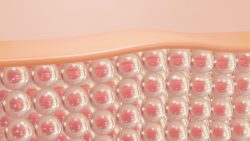 A new study has developed a novel method for studying age related disorders of the brain. The team has focused on the neurodegenerative disorder Huntington’s Disease for the research.
A new study has developed a novel method for studying age related disorders of the brain. The team has focused on the neurodegenerative disorder Huntington’s Disease for the research.
The difficulty in recreating adequate animal or cellular models of disease is an issue that has limited progress towards new treatment. For example, Huntington’s disease, which affects about 30 thousand people globally, is characterized by uncontrollable jerky movements of specific limbs. This makes it difficult to study because there are no human cell cultures available for research purposes. However, one way around these obstacles could be through reprogramming cells again rather than using traditional methods.
The study on Huntington’s disease provides an innovative process by reprogramming skin cells into neurons. This allows them for the first time ever, not just at a cellular level but also on an emotional one too. This could be important when it comes down to studying age related brain disorders such as Alzheimer’s or Parkinson’s.
Researchers were able to reprogram skin cells from patients that have Huntington’s disease converting them into neurons. They then compared the “reprogrammed” brain cell samples against people that are healthy. The findings showed several defects unique only among those suffering from HD; namely an inability to break down certain proteins that may cause energy shortage or increased trafficking rates within the body’s system leading up toward illness onset (traffic overload).
They found that these reprogrammed neurons keep their biological age, which could make them an excellent model system This means they are old and can be used as a reference in studying other neurodegenerative disorders such Alzheimer’s or Parkinson’s disease. The findings are important for future studies using this model system and may also provide insight into how aging affects our health over time.
To find a cure for Huntington’s disease, scientists need to investigate the progression of this deadly condition in living organisms. Researchers are using cells taken from patients with HD and studying them outside their bodies- something that has never been done before.
The model was created for this purpose and so far it seems accurate. More research is needed on how useful these findings really are when applied towards human treatments or even prevention strategies.
To view the original scientific study click below:
Distinct subcellular autophagy impairments in induced neurons from patients with Huntington’s disease/a>





